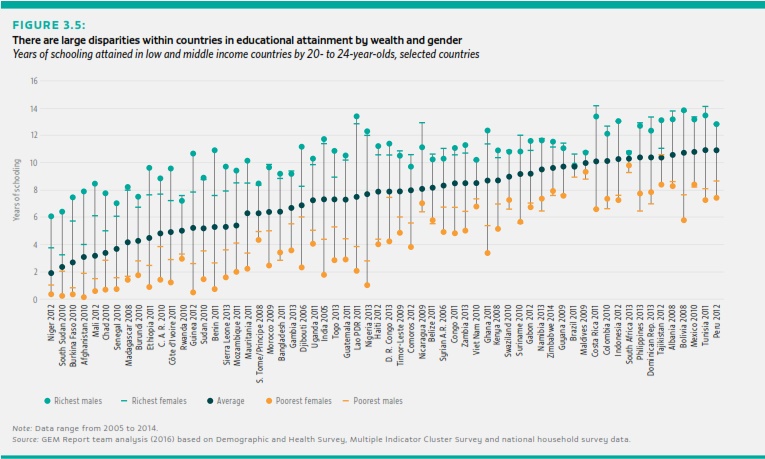About 224 million people in India lived below poverty line in 2013. This is according to ‘Poverty and Shared Prosperity’, a report released by World Bank.
The World Bank is working towards its goal of eliminating extreme poverty by 2030 by boosting the shared prosperity of the bottom 40% of population in each country. Since 1990, around 1.1 billion people have lifted themselves out of extreme poverty, with areas ranging from child survival to enrolment of children in primary education.

The survey which was carried out in 89 developing countries found that 80% of the poor population globally lived in rural areas; 64% were engaged in agricultural activities; 44% were 14 years and older; and 39% of them have no formal education at all.
People engaged in agricultural activities were four times more likely to be poor than people engaged in other economical activities. Ironically government data shows over 58% of Indian rural households are still dependent on agriculture, fisheries and forestry for their livelihood.
Literacy plays a very crucial role when it comes to development of an individual and the nation. Educational attainment is inversely correlated with poverty. A small number of primary-school graduates are living in poverty; fewer than 8% of people who completed primary school, but not secondary school, are living below the $1.90 poverty line. Number of individuals who pursued higher education was less than 1.5%. Similar cases were seen even when poverty incidences was measured at $3.10-a-day poverty line.
India’s National Literacy Mission defines literacy as acquiring the skills of reading, writing and arithmetic and the ability to apply them in daily life. As per estimates around 55 million people who are available for work in India only 37.6% or 20.9 million are literates with education up to secondary level. “The best way for poor people to leave poverty for good is for them to get good, well-paying jobs. The vast majority of those jobs will be created by the private sector”, report added.
The biggest threat to global progress that exists today is that of inequality. High income inequality is not a new phenomenon in human history. But today, inequality is constraining national economies and destabilizing global collaboration in ways that put humanity’s most critical achievements and aspirations at risk. This includes the goal of ending extreme poverty by 2030.
The state of Kerala which has the highest literacy rate and sex ratio has seen increase in number of domestic violence and dowry-related crimes. Incidentally, globally men’s education and their mother’s education were found to be positively associated with progress towards gender equality, except in India, a UN report found.
The report also pointed out that ‘much of extreme poverty could be eliminated in developing countries by reallocating regressive fossil-fuel energy subsidies and excessive military spending to cash transfers’.
It is not possible to address the country’s poverty issue with ‘One solution fixes all’ attitude. Even though the challenges globally have been similar it seems the country’s issues vary geographically and culturally. Educational curriculum should be designed in a way to focus more on practical learning outcomes instead of just theoretical knowledge being imparted.
Thank you for reading the story until the very end. We appreciate the time you have given us. In addition, your thoughts and inputs will genuinely make a difference to us. Please do drop in a line and help us do better.
Regards,
The CSR Journal Team

